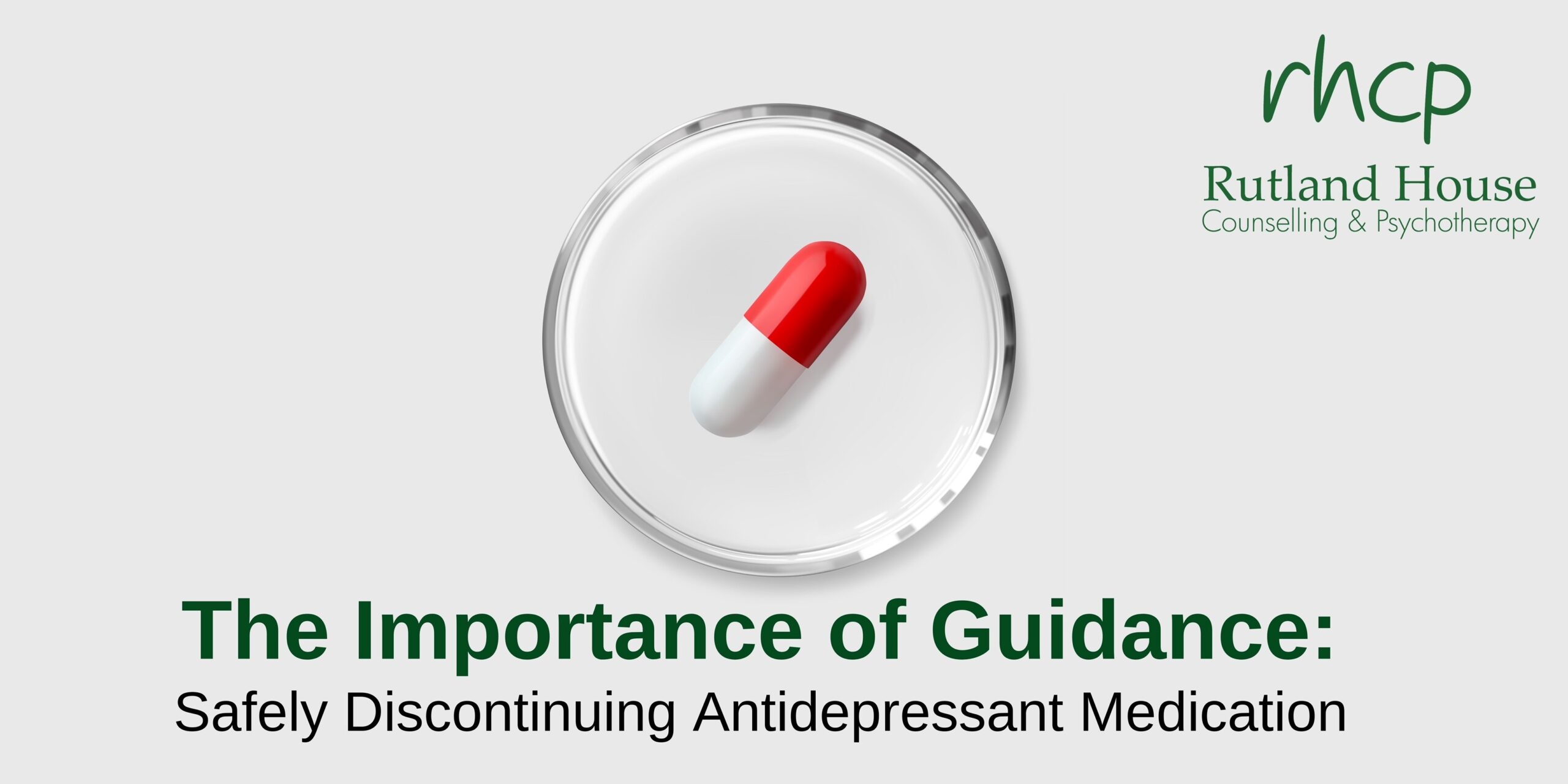Deciding to discontinue antidepressant medication is a significant decision that warrants careful consideration and, most importantly, professional guidance. Following the advice of healthcare providers is crucial for several reasons and is more likely to ensure a safe and effective transition that prioritises your mental well-being and stability.
Firstly, abrupt discontinuation of antidepressants can lead to withdrawal symptoms. These symptoms, may include dizziness, nausea, irritability, generally feeling ‘unwell’, anxiety and mood swings. Often people can mistake these withdrawal symptoms as a return of their mental health difficulties and immediately return to the medication, thus interrupting their intention to reduce or discontinue use. Withdrawal symptoms can be challenging to manage without proper guidance, and a structured plan to follow. Healthcare professionals employ a gradual tapering approach to minimise withdrawal effects, different medications should be adjusted during this tapering process differently, so do not assume that you can just half your dose for a few days, or create another ‘self-managed’ plan and then just stop.
Guidance from healthcare providers helps tailor the discontinuation plan to the unique needs of each patient. Factors such as the type of antidepressant, the duration of use, and the individual’s mental health history play a crucial role in determining the most suitable approach. Customising a plan ensures a personalised and effective strategy for tapering off the medication.
Monitoring for potential relapse is another critical aspect addressed by healthcare professionals during the discontinuation process. Mental health providers can assess the risk factors and closely monitor patients for any signs of recurring depressive symptoms. This proactive approach allows for timely intervention and adjustments to the treatment plan, mitigating the risk of a relapse.
Guidance is essential for managing the psychological aspects of discontinuing antidepressant medication. Patients may experience a range of emotions, including anxiety and uncertainty, during this process. Healthcare professionals offer not only medical expertise but also emotional support, helping individuals navigate the challenges associated with the decision to stop medication.
Moreover, professional guidance facilitates open communication between the patient and healthcare provider. Regular check-ins provide an opportunity to discuss concerns, side effects, and any emerging challenges. This collaborative approach ensures that the patient is an active participant in their mental health journey, fostering a sense of empowerment and control.
It’s important to recognise that antidepressants impact the brain’s neurochemistry, and discontinuing them without proper guidance can disrupt this delicate balance. A healthcare provider can help manage potential disruptions, minimising the risk of withdrawal symptoms and promoting a more comfortable transition.




